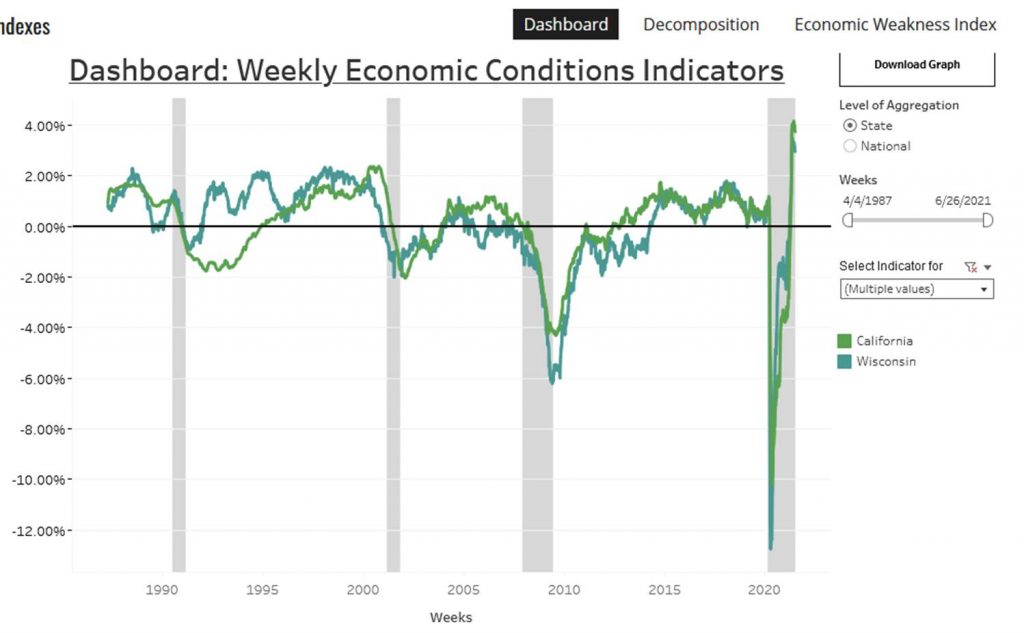Last week Menzie called attention to an interesting new paper by Baumeister, Leiva-León, and Sims on tracking weekly state-level economic conditions. I wanted to add that the authors have also created a really cool data dashboard that allows users to look up the latest economic situation for any individual states and sectors of interest.

That IS cool.
Thanks to the authors for creating the dashboard and thanks to our two benevolent blog hosts for sharing. Sims has in essence a FREE intermediate Macro textbook for those interested. Just go to his Notre Dame prof website and look around at the links and you should be able to find it. I’m sure there’s others, but you’ll be hard-pressed to find that quality of text available for FREE download. God bless.
HI Menzie – this dashboard is great. Thanks for pointing it out. As a Wisconsinite I enjoy comparing WI performance against our comparable neighbor states – Iowa and Minnesota. For several reasons – I leave out Illinois – Chicago – etc. Up until 2011-2012 WI performance seemed approx comparable. However, after that date – both WI and IA have lagged MN. Also – for non WI residents – the gerrymandered WIGOP state legislature sets the budget – The state legislature is controlled about 60 (R) – 40 (D) even though WI vote 52-53%-D on statewide races. Menzie – i know that during the past several years you have posted similar data. I’m left to conclude that GOP economic policies produce less economic growth than more progressive policies (i.e. MN). It will be interesting to see if Gov Evers can claw back some of the more harmful GOP policies (things like the FoxConn Boondoggle) and improve WI GDP performance. Thank you.
Thanks. That’s going to have me thinking for a while about why some of the state-by-state differences are happening.
Outside the USA, it is said there is a draught in Brazil which will cause an increase in coffee prices worldwide. The USDA is saying that Brazil’s arabica crop is forecast to be 15 million 132-pound bags smaller than in 2020. Willmeister my friend, that’s a lot of coffee.